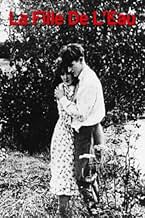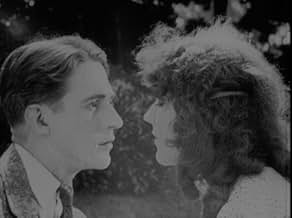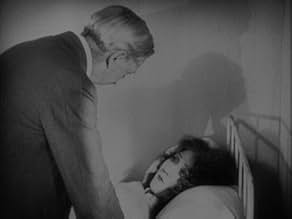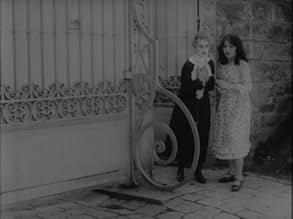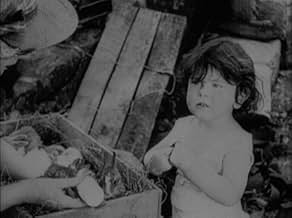Adicionar um enredo no seu idiomaAfter her father's death and her uncle having drunk all the inheritance, Virginia is left alone. She is accepted by a family of bohemians but a quarrel between the bohemians and the peasants... Ler tudoAfter her father's death and her uncle having drunk all the inheritance, Virginia is left alone. She is accepted by a family of bohemians but a quarrel between the bohemians and the peasants coerce her to flee the peasants' riot. She is then helped by Raynal who falls in love wit... Ler tudoAfter her father's death and her uncle having drunk all the inheritance, Virginia is left alone. She is accepted by a family of bohemians but a quarrel between the bohemians and the peasants coerce her to flee the peasants' riot. She is then helped by Raynal who falls in love with her but is too shy to tell her. Sheltered by his father, Virginia is robbed by her uncle... Ler tudo
- Direção
- Roteirista
- Artistas
Avaliações em destaque
The heroine called Gudule (the name has become completely ludicrous in today's France ;no one is called Gudule anymore)is played by Renoir's favorite actress of the silent era ,Catherine Hessling.Her fate is worthy of Hugo's "les miserables" :mistreated by a wicked lecherous uncle ,taken in by a poacher and his mum, left in the cold and the rain...And finally she finds love :a nice young man falls for her and marries her.His background is very bourgeois ,but the parents do not seem to bother.That is to say we are far from "Boudu Sauvé des Eaux" ,"La Chienne" and even "Une Partie de Campagne" .
Best moment: the heroine's nightmare;people who know well Renoir's silent era will notice the similarities between this sequence and that of "La Petite Fille aux Allumettes" where the little match girl and her attentive escort go for a horse ride in the sky.The comparison stops here for " La Fille de l'Eau' is inferior to the Andersen adaptation.
Actually the main influence is DW Griffith but then again Hessling is not
Lilian Gish.
For Renoir's fans.The others might find it a bit obsolete.
But there is a dream sequence here that, as so often with these silent dreams, I urge you to see. It's about the girl transmuting in her feverish mind these barely comprehensible forces that threaten the virgin soul into images that will make sense; so an imaginative flight, a sensual, delirius game of hide-and-seek where the coarse, violent men haunt her down, where a piece of rope transforms into the snake of mischievous desire, a point-of-view rushing towards a door and the light outside, and finally the man who can protect her shown, quite literally, as a champion on his white horse galloping across the skies.
The overwhelming experience is so perfectly about the distorted imprint of the world. This should be seen next to the best moments in Epstein. There is shadow here cast by the eye in motion, emotional or otherwise.
Another note that intrigues, a blemish in the perfect picture of her well-to-do benefactor. His parents are shown at one point hastily leaving for Algiers on account of business; what was probably meant innocently at the time, now can only leave us wondering at his source of wealth.
The editing was just amazing. The quick cuts where so spot on and well paced. And the trick shots where like something from a poetic avant garde film. There was also a very nice close up of eyes, which reminded me of the Spaghetti Westerns.
The story is not bad. Reminded me a little of D.W. Griffith mellow drama. The acting is also not too bad but the strength of this film is first and foremost its visual aspect, something sadly lacking in his other silent films I have seen.
Você sabia?
- CuriosidadesCharlotte Clasis's debut.
- ConexõesEdited into Spisok korabley (2008)
Principais escolhas
Detalhes
- Tempo de duração
- 1 h 11 min(71 min)
- Cor
- Mixagem de som
- Proporção
- 1.33 : 1


